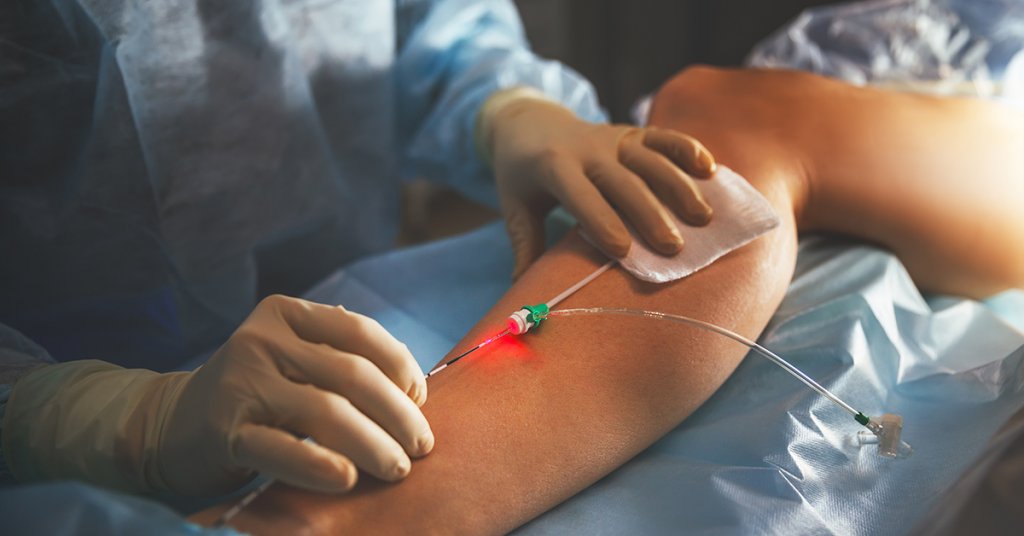5 Reasons to See A Vascular Doctor

Vascular doctors, sometimes called vascular interventionists, are doctors that receive extensive training in the diagnosis, treatment, and management of conditions affecting the vascular system. Cardiovascular doctors care for the heart and its vessels, but you might be surprised to find out how many conditions other vascular physicians can treat. Below are just five reasons to see a vascular doctor.
According to the National Kidney Foundation, chronic kidney disease (CKD) affects an estimated 37 million people in the United States. That’s 15% of the adult population. When someone progresses to end-stage kidney disease (ESKD), or kidney failure, they will need to be treated with hemodialysis or get a kidney transplant. Vascular doctors make hemodialysis possible by creating and caring for vascular access grafts. Keeping access grafts open is one of the biggest challenges that doctors and patients dealing with ESKD.
One of the most common reasons to see a vascular doctor is for the treatment of arterial disease. The arteries are the blood vessels responsible for carrying oxygen-rich blood away from the heart to the rest of the body. While cardiovascular doctors focus on diseases of the vessels within the heart, other vascular specialists treat arterial disorders in the rest of the body.
Peripheral artery disease (PAD) is a condition that reduces blood flow to your limbs. Blood flow is restricted by the narrowing of the peripheral arteries due to plaque buildup. Vascular doctors can perform a variety of procedures to treat PAD.
Vascular doctors may also specialize in treated renal artery disease, which is caused by a blockage in the renal artery, which is the artery that supplies blood to the kidney. This can cause hypertension and when left untreated, it can cause permanent kidney damage. Luckily a vascular interventionist can treat this condition with medication or angioplasty.
Vascular doctors receive extensive training in treating venous disease as well as arterial disease. While the arteries carry oxygenated blood from the heart, veins carry oxygen-poor blood back to the heart. Veins contain valves that keep your blood flowing in one direction as it travels back to the heart. Venous disease can damage the structure of the veins including the valves, leading to problems with blood flow. Venous diseases commonly treated by vascular specialists include:
One of the many reasons to see a vascular doctor is if you have uterine fibroids. Uterine fibroids, also called myomas, are benign (non-cancerous) growths that develop in or on the walls of a woman’s uterus. Some women do not have symptoms that indicate the presence of fibroids and they are only found during a routine pelvic exam.
Sometimes they are harmless and can be left alone, especially if they are small. However, sometimes fibroids grow to over six inches in diameter or cause problems within the reproductive tract. Symptoms caused by fibroids may include:
- Heavy bleeding during menstrual periods
- Menstrual periods that last longer than a week
- Pain during sexual intercourse
- Pelvic pressure or pain
- Backache
- Leg pain
- Difficulty emptying the bladder
In cases where the fibroids are causing issues, they may need to be treated by a specialist. Vascular doctors who specialize in interventional radiology can perform a procedure called Uterine Fibroid Embolization (UFE) to treat fibroids. Using a catheter inserted through the thigh or wrist, the doctor injects tiny beads into the blood vessels that feed the fibroids. The beads then block blood flow to the fibroids, causing them to shrink.
5. Pelvic Congestion Syndrome
Pelvic Congestion Syndrome (PCS) is a venous condition that causes pelvic pain in women. The condition is caused by varicose veins in the pelvis putting pressure on the ovaries, bladder, and rectum. PCS is affected by hormones that change during the menstrual cycle so symptoms may be worse during menstruation. The following may be signs of PCS:
- Pain or aching in the pelvis and lower abdomen
- Pain before or during menstruation
- A feeling of fullness in the legs
- Dragging sensation in the pelvic area
- Urinary urgency
- Enlarged and twisted veins on the vulva, thighs, or buttocks.
A vascular specialist can treat PCS with an embolization procedure. Embolization is a non-surgical procedure that uses interventional radiology (IR) to cut off the blood supply to the abnormal veins, causing them to close up or collapse. This can provide a much-needed relief from painful symptoms.
Make an Appointment
Preferred Vascular Group is your home for comprehensive vascular care. We have specialties to address all of the above concerns including comprehensive dialysis access care, education, and management. Our Women’s Fibroid & Vascular Center specializes in treating uterine fibroids and women’s vascular conditions like pelvic congestion syndrome.
—
If you would like to schedule an appointment at Preferred Vascular Group to have a consult with a Board-Certified physician or would like to have one of our highly trained care providers reach out to you, please click on a button below:
